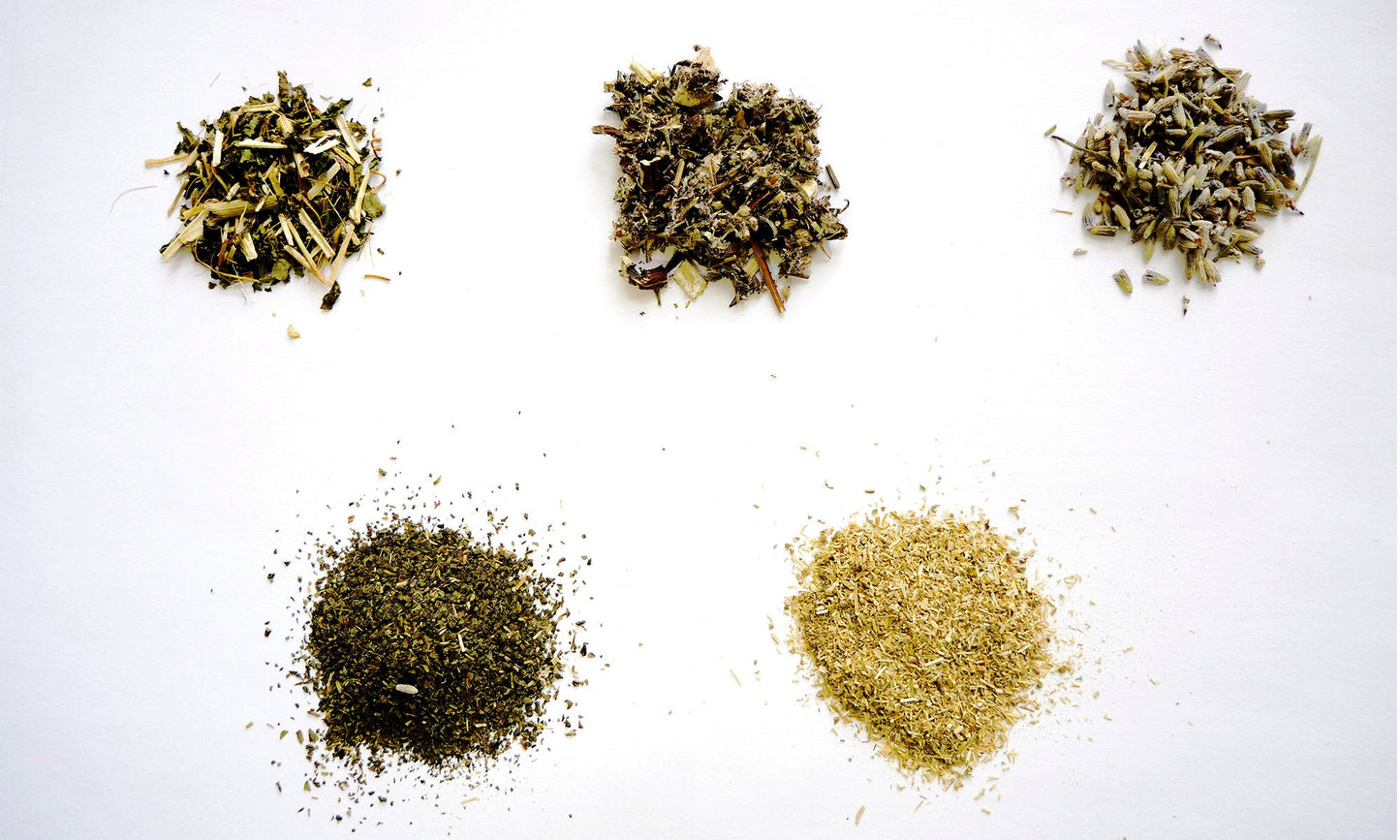
The Scientific Research on Stinging Nettle
Stinging nettle (Urtica diocia) is a plant that has been used for centuries in herbal medicine. It has a reputation for causing a burning sensation when touched, but it also offers many health benefits when consumed or applied topically.
Disclaimer: While Stinging Nettle offers numerous health benefits, it is essential to consult with a healthcare professional before incorporating it into your routine, especially if you have any underlying health conditions or are taking medications. Do your OWN research into the plant. Twowards Threedom staff are not responsible for any adverse affects you may experience, if any. This post is purely for educational purposes.
1. It contains many nutrients. Stinging nettle is rich in vitamins, minerals, fatty acids, amino acids and antioxidants that can protect your cells from damage and support your overall health. Some of the nutrients found in stinging nettle include vitamins A, C, K and B complex, calcium, iron, magnesium, potassium, sodium, linoleic acid, linolenic acid, quercetin, kaempferol, caffeic acid and beta-carotene.
2. It may reduce inflammation. Inflammation is a natural response to injury or infection, but chronic inflammation can lead to various diseases and symptoms. Stinging nettle has anti-inflammatory properties that can help reduce pain and swelling in conditions such as arthritis, gout, eczema and psoriasis. Stinging nettle can inhibit the production of inflammatory markers and modulate the immune system.
3. Lower blood pressure. High blood pressure is a risk factor for heart disease and stroke. Stinging nettle may help lower blood pressure by relaxing the blood vessels and reducing the force of the heart's contractions. Stinging nettle may also lower blood pressure by acting as a diuretic, which means it helps the body get rid of excess fluid and sodium.
4. It may lower blood sugar levels. Diabetes is a condition where the body cannot regulate its blood sugar levels properly. Stinging nettle may help lower blood sugar levels by improving insulin sensitivity and glucose uptake in the cells. Stinging nettle may also lower blood sugar levels by stimulating the pancreas to produce more insulin.
5. It may improve urinary tract health. Urinary tract infections (UTIs) are caused by bacteria that invade the urinary system. Stinging nettle may help prevent or treat UTIs by flushing out the bacteria and reducing inflammation in the urinary tract. Stinging nettle may also help with benign prostatic hyperplasia (BPH), which is an enlargement of the prostate gland that can cause urinary problems in men.
6. It may promote hair growth. Hair loss can be caused by various factors, such as genetics, hormones, stress and aging. Stinging nettle may help stimulate hair growth by improving blood circulation to the scalp and providing nutrients to the hair follicles. Stinging nettle may also help prevent hair loss by inhibiting the conversion of testosterone to dihydrotestosterone (DHT), which is a hormone that can shrink the hair follicles and cause baldness.
7. It may relieve allergies. Allergies are caused by an overreaction of the immune system to harmless substances, such as pollen, dust or animal dander. Stinging nettle may help relieve allergy symptoms, such as sneezing, itching, runny nose and watery eyes, by blocking the release of histamine and other inflammatory mediators from mast cells.
8. It may support skin health. Skin problems, such as acne, rashes, wounds and burns, can affect your appearance and self-esteem. Stinging nettle may help improve skin health by reducing inflammation, fighting bacteria, healing wounds and soothing irritation. Stinging nettle can also nourish your skin with its vitamins, minerals and antioxidants.
9. It may enhance digestion. Digestive issues, such as indigestion, constipation, diarrhea and bloating, can affect your comfort and well-being. Stinging nettle may help improve digestion by stimulating the production of digestive enzymes and bile, which aid in breaking down food and absorbing nutrients. Stinging nettle may also help improve digestion by regulating the intestinal flora and preventing or treating intestinal parasites.
10. It may have anticancer effects. Cancer is a disease where abnormal cells grow uncontrollably and invade other tissues and organs. Stinging nettle may have anticancer effects by inducing apoptosis (cell death) in cancer cells, inhibiting angiogenesis (blood vessel formation) in tumors, preventing metastasis (spread) of cancer cells and enhancing the immune system's ability to fight cancer.

What are some side effects of stinging nettle?
Stinging nettle is generally safe to consume when processed properly, but it may cause some side effects in some people or interact with some medications.
Some common side effects of stinging nettle include:
- Diarrhoea
- Constipation
- Upset stomach
- Sweating
- Skin irritation
- Hives or rashes
Some people may also be allergic to stinging nettle and experience severe reactions, such as difficulty breathing, swelling of the face or throat, or anaphylaxis.
Stinging nettle may also interact with some medications, such as:
- Diabetes medications: Stinging nettle may lower blood sugar levels and increase the risk of hypoglycaemia (low blood sugar).
- Blood pressure medications: Stinging nettle may lower blood pressure and increase the risk of hypotension (low blood pressure).
- Blood thinners: Avoid taking stinging nettle if you are on blood thinners, such as warfarin, heparin, or aspirin as stinging nettle may increase the risk of bleeding by interfering with blood clotting.
- Lithium: Stinging nettle may increase the amount of lithium in your body and cause toxicity. Avoid taking stinging nettle if you are on lithium.
If you have any medical conditions or are taking any medications, consult your doctor before taking stinging nettle.
Research
-
Nutritional and pharmacological importance of stinging nettle (Urtica dioica L.): A review
-
Urtica dioica-Derived Phytochemicals for Pharmacological and Therapeutic Applications
-
Mineral Properties and Dietary Value of Raw and Processed Stinging Nettle (Urtica dioica L.)
- Stinging nettle - most nutritious plant on Earth? (Video)
- How to cook and eat stinging nettle (Video)


